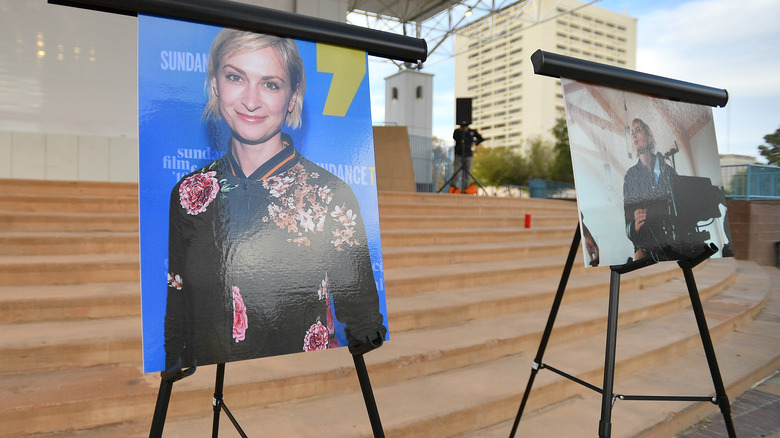New Details Emerge About Rust Assistant Director Dave Halls' Training
Since the tragic, accidental shooting death of cinematographer Halyna Hutchins on the New Mexico set of "Rust" that occurred when actor Alec Baldwin's prop gun misfired, details about the production have emerged at a rapid pace, painting a dire picture of skirted safety precautions, frustrated workers, and more. Much of the reporting has spotlighted assistant director David Halls, the man who handed Baldwin the gun in question.
Halls has admitted to investigators that he did not properly examine the weapon before handing it to Baldwin, and reports from others on-set indicate that he demonstrated a pattern of lax behavior around set safety long before the horrific accident. For instance, Halls allowed the operation of cars in an open field by untrained stunt drivers. Prior to the fatal shooting, prop guns had already misfired at least twice on the beleaguered New Mexico set, and mere hours before the shooting, six camera crew workers walked off the set in protest over what they claimed were habitually unsafe working conditions. While "Rust" armorer Hannah Gutierrez-Reed says she doesn't know where the live rounds came from, clearly all was not well on the western front.
Oftentimes, film labor unions dictate on-set safety, but the "Rust" production often opted to replace union workers — who are mandatorily safety trained and tend to have more expertise — with non-union workers for whom safety training is not guaranteed, leading to a lambasting from both a New Mexico union and IATSE. Now, new information has come to light regarding Halls' safety qualifications and union status.
Dave Halls, First AD on 'Rust,' is safety-trained but not a DGA member
Records show that, despite not being a Directors' Guild of America union member, "Rust" assistant director Dave Halls had completed mandatory DGA safety training required by the union for ADs and other high level production officials (via Deadline). In lieu of membership, Halls is what's known as a "financial core non-member" (often shortened to fi-core), meaning someone outside the organization who pays fees to the DGA for the costs of contract administration and enforcement as well as those of collective bargaining.
Fi-core status is uncommon in the industry, as most directors appreciate the benefits that come with DGA membership. SAG-AFTRA (the Screen Actors' Guild-American Federation of Television and Radio Artists) considers those with fi-core status to be anti-union, or "scabs" — a derogatory term for people who break with the union line, especially during a strike, for their own benefit.
Despite having fulfilled the minimum requirements for safety certification, Halls, whose most notable work was on "The Matrix Reloaded" in 2003, had already been removed from a different film, "Freedom's Path," where, once more, a firearm had mistakenly discharged. The "Rust" killing is beginning to look less like an isolated incident and more like the most extreme example of an established pattern surrounding on-set safety for Halls. As harsh working conditions for film crews comes under increasing scrutiny of late, unions such as IATSE have seized on the tragic death of Halyna Hutchins as case-in-point evidence of their claims (via the Los Angeles Times). For many in the industry, it is increasingly hard to disagree.

